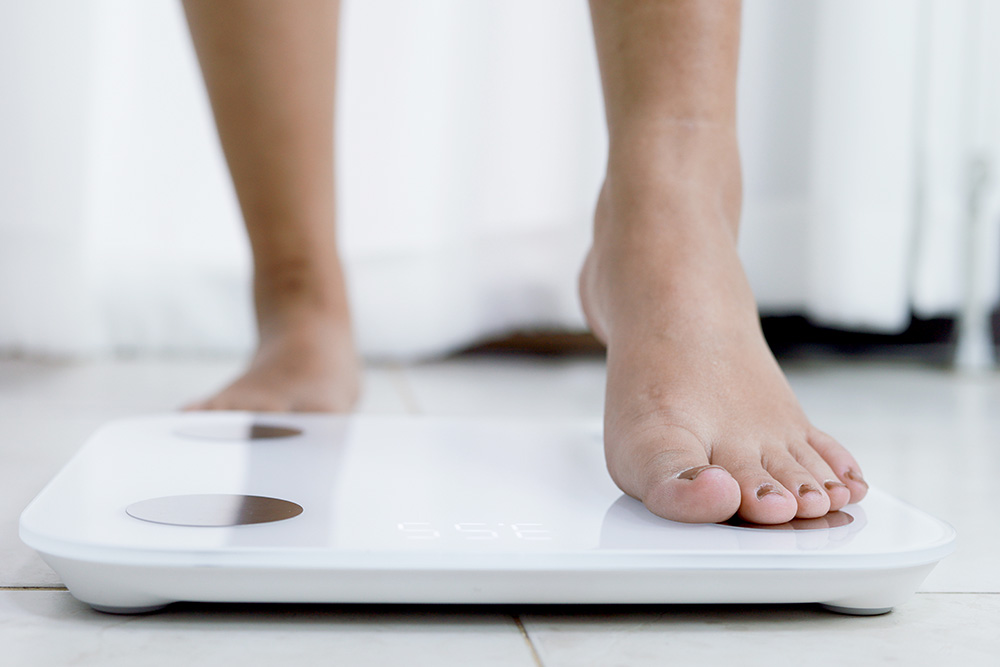Finding balance with alcohol can be challenging, especially when it comes to maintaining your physical health.
Alcohol is filled with empty calories and can quietly contribute to weight gain, fatigue, and other health issues over time. The connection between alcohol and weight goes deeper than just calories; it can also affect your metabolism, mood, and even your relationship with food during recovery.

At The Raleigh House, we recognize the close connection between physical and emotional health. For many people, alcohol use disorder impacts more than the body—it changes the way you think, feel, and live each day.
By learning how alcohol influences weight and wellness, you can take the first steps toward restoring balance and long-term recovery.
How alcohol impacts metabolism and weight
Your body processes alcohol differently from food.
Because alcohol is considered a toxin, your liver prioritizes metabolizing it over other substances. While your body works to remove alcohol, it pauses fat and carbohydrate metabolism, making it easier for extra calories to be stored as fat.
Over time, this process can lead to weight gain, especially around the abdomen. Alcohol also dehydrates the body and interferes with sleep, both of which can affect hormone regulation and energy levels, ultimately slowing metabolism further.
Even moderate alcohol consumption can affect how efficiently your body burns calories, making balance and awareness essential.
Alcohol and appetite: Why overeating is common
Alcohol doesn’t just contribute extra calories; it often increases your appetite and lowers your inhibitions.
After a few drinks, it’s easy to make impulsive food choices like ordering pizza, wings, or desserts that you might normally skip.
These late-night eating habits, combined with the high sugar content of many alcoholic beverages, make it easy to consume hundreds, or even thousands, of extra calories in a single evening.
When repeated over time, these choices contribute to gradual, noticeable weight gain.
The connection between alcohol and sugar cravings
When someone stops drinking, they often experience new or intensified sugar cravings. This happens because alcohol and sugar both activate the brain’s reward system by increasing dopamine, the “feel-good” chemical responsible for pleasure and motivation.
During recovery, your body may crave sugar as a substitute for alcohol. This is known as a transfer addiction, or replacement behavior.
Sugar can create a temporary sense of comfort, but excessive intake can lead to unstable blood sugar levels, fatigue, and mood swings that make maintaining recovery more challenging.
Why sugar cravings occur in alcohol recovery
Several biological and emotional factors contribute to sugar cravings after quitting alcohol, including:
- Blood sugar imbalance: Alcohol disrupts glucose regulation in the liver, often leading to low blood sugar. Your body compensates by craving sweets for a quick energy boost.
- Dopamine and serotonin changes: Alcohol alters neurotransmitter levels that affect mood. Sugar provides a temporary lift, which your brain interprets as relief.
- Emotional coping: Recovery can be stressful, and sugar may become a substitute coping mechanism for stress or anxiety.
While occasional sweets are fine, relying on sugar to cope can create another unhealthy dependency that undermines long-term recovery goals.
Healthy ways to manage sugar intake and support recovery
Balancing your diet during recovery is a crucial part of rebuilding both physical and mental health. These strategies can help:
- Stay hydrated: Replace sugary drinks with water, sparkling water, or herbal teas.
- Eat balanced meals: Include protein, complex carbohydrates, and healthy fats to stabilize energy and reduce sugar cravings.
- Plan ahead: Keep nutritious snacks on hand, such as fruit, nuts, or yogurt, instead of processed sweets.
- Prioritize rest and movement: Quality sleep and regular exercise regulate appetite and mood.
- Be mindful of triggers: Notice when cravings arise and redirect your focus with healthy habits, such as journaling or walking.
These small, intentional steps can strengthen your recovery, improve overall wellness, and help you feel more in control of your body and mind.
When weight gain signals something more
While gaining a few pounds from alcohol may not seem serious, frequent overconsumption can be a sign of deeper issues with control or dependency.
If you find it challenging to limit your drinking, often drink more than planned, or use alcohol to manage emotions, it may be time to seek help.
Alcohol can change the brain’s chemistry, making it difficult to stop drinking without professional support.
Understanding the physical effects, such as weight gain, muscle weakness, and sugar cravings, can be the first step toward recognizing the broader impact alcohol has on your life.
Healing and recovery at The Raleigh House
At The Raleigh House, we help clients rebuild a healthy relationship with their bodies and minds through evidence-based therapies, nutrition education, and compassionate care.
Our approach addresses both the physical and emotional roots of alcohol use disorder, helping you rediscover balance and confidence in your recovery journey at two Colorado locations:
- The Ranch at The Raleigh House: Nestled in the peaceful Colorado countryside, The Ranch offers a serene space for those looking to recover from trauma, mental health conditions, and addiction. With nature-inspired therapies and a nurturing community, the ranch is an ideal place to find peace and heal.
- The Center for Integrative Behavioral Health: Located in the Denver Tech Center, our newest facility offers the same clinical excellence and unique healing experiences for trauma, mental health, and addiction. It’s an excellent setting as well for those individuals needing physical accessibility support in a beautiful and nurturing environment.
Take the first step toward a healthier, more balanced life. Contact us today to discover how our programs can help you start your journey to lasting recovery.

At The Raleigh House addiction treatment center, Denver, our mission is to help individuals and families find lasting healing through compassionate, evidence-based care. As a leading recovery facility in Denver, we provide personalized programs that address both substance use and mental health conditions, empowering clients to rediscover balance, resilience, and hope.
